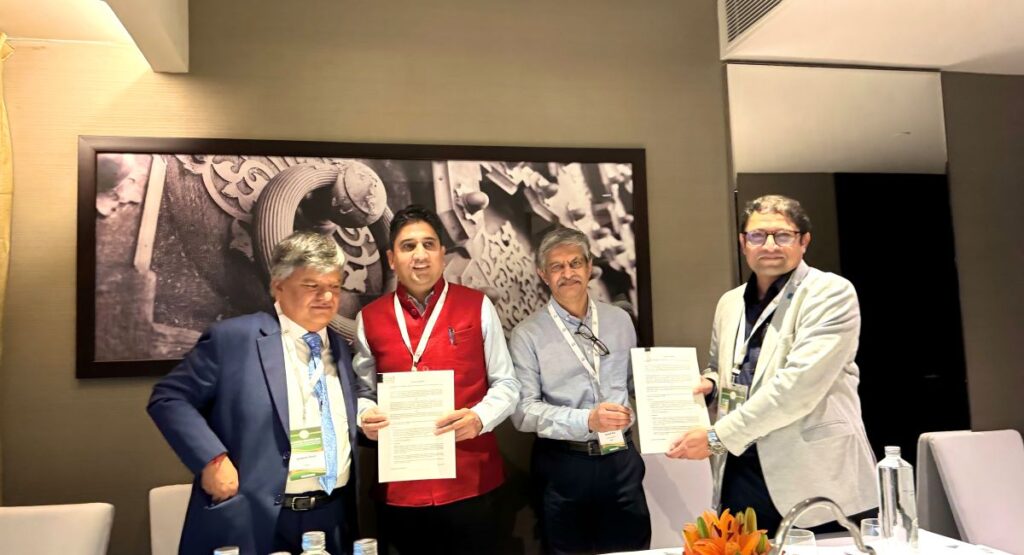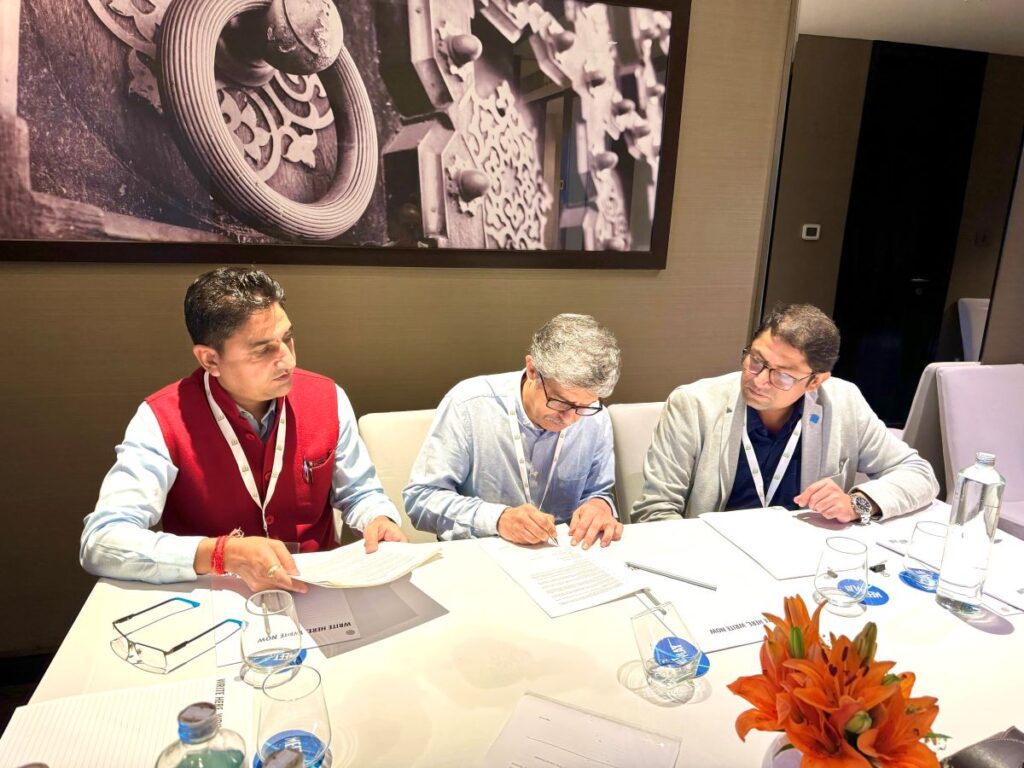ZFHL, PPL, and IFDC Sign MoU for a Fertilizer Innovation Center in India
December 20, 2023

(From left to right) IFDC Board Member, Sameer Goel, IFDC Country Manager of India, Dr. Yashpal Saharawat, Vice President of Retail Business for ZFHL, Anand Ron, and Chief Sustainability Officer of PPL, Vinay Venkappayya, commemorate the singing of the Memorandum of Understanding (MoU).
Innovation is not an option but a necessity for the sustainability of Indian agriculture and the fertilizer sector. The fertilizer sector in India faces immense challenges in feeding a burgeoning population and securing an agricultural future. Since the country’s independence, the sixfold increase in India’s food grain production required fertilizer use to increase by a factor of 426. This resulted in achieving food security through increased farm productivity. However, due to subsequent imbalanced nutrient application over the years through inappropriate fertilizer use, soil health has been adversely impacted. This is evident from the continuously declining crop response. As soil health is directly proportional to human health and has a direct impact on the future of agri-food security, innovation in fertilizer design is imperative.
Furthermore, the annual fertilizer subsidy incurred by the government, now around $28 billion, continues to increase. This alarming situation for the fertilizer sector demonstrates the need for embracing technological advancement, enacting enabling policies, and empowering farmers. To help find science-based solutions for current and future problems, Zuari FarmHub Limited (ZFHL), Paradeep Phosphate Limited (PPL), and IFDC signed a Memorandum of Understanding (MoU) on December 7 in New Delhi, India, on the sidelines of the Fertilizer Association of India (FAI) Annual Seminar. More than 1,500 stakeholders echoed the sentiment for the need of innovations in fertilizer production and management, supported by science-based policies.
“We want to build a globally competitive Indian fertilizer sector to create value for soil, environment, and mankind and cater to the needs of smallholder farmers.”
N. SURESH KRISHNAN, CHAIRMAN OF FAI AND MANAGING DIRECTOR AND CEO OF PPL
The MoU envisions the establishment of the Fertilizer Innovation Centre of India (FIC-India) to foster these innovations and deliver them to farmers’ doorsteps. The research agreement between IFDC, a global center of excellence in fertilizers (IFDC); ZFHL, the leading Indian agritech company; and PPL, a prominent fertilizer manufacturer and distributor, foresees healthier soils and environment for better human health and agricultural sustainability. Under this collaboration, IFDC anticipates developing India as the next research and development hub to innovate efficient nutrient sources and production technologies for enhancing nutrient use efficiency.
The multistakeholder approach seeks to address soil health and environmental concerns by producing efficient fertilizer and promoting integrated nutrient management.

Sameer Goel, member of the IFDC Board of Directors, highlighted the need for enabling policies and enhanced investments in research and development to transform the subsidy-based fertilizer sector into an incentive-based business model. To ensure a sustainable future, we must develop and promote sustainable alternative nutrient sources, boost fertilizer use efficiency, enhance efficient production processes, and empower farmers to make informed decisions on fertilizer use to optimize productivity and reduce environmental impacts.
Dr. Yashpal Saharawat, IFDC Country Manager of India, emphasized the significant role fertilizer has played in the success of the Green Revolution, leading to the transformation of India from a “ship-to-mouth” country to a net exporter of food grains, although at a substantial cost of soil and environment health. He noted the urgent need for soil, environment, and human stewardship, which will require investments in new research and innovation at different stakeholder levels.
This multistakeholder collaboration between IFDC, ZFHL, and PPL will act as a catalyst for innovation, growth, and positive change in science and society from a crop and human nutrition point of view.